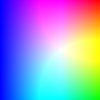So I've looked around, and there is a lot of info to be found on this subject, but it is only for encoding floats in the range [0, 1], and I want to encode floats of arbitrary magnitude. Can you tell me if my method is sound?
On the CPU:
glm::ivec4 FloatToRGBA(float input)
{
int exponent;
float significand = frexp(input, &exponent);
int sig_int = glm::round(significand * 16777215.0f);
glm::vec4 output;
output.x = exponent + 128;
output.y = sig_int & 0x000000FF;
output.z = (sig_int & 0x0000FF00) >> 8;
output.w = (sig_int & 0x00FF0000) >> 16;
return output;
}
On the GPU:
float RGBAtoFloat(float4 input)
{
float significand = dot(input.yzw, float3(16711680.0f, 65280.0f, 255.0f)) / 16777215.0f;
return ldexp(significand, input.x * 255.0f - 128.0f);
}







